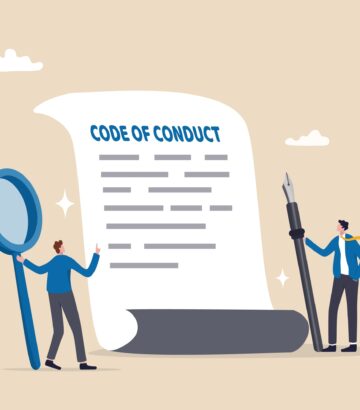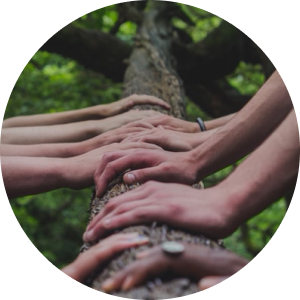Freedom and COVID
Since the advent of COVID-19, I have never been so unfree. Since March 2020, I have lost many of my freedoms, not so much because the French state has imposed major restrictions over the past few months, but because I don’t want to catch COVID for a variety of reasons, nor to pass it on to others. This has forced me to completely reorganize my life and that of my family, and in the end, despite the precautions I have taken, I have recently been infected. The paradox of this situation is that I was ultimately freer when the virus was circulating at a low level, thanks to mitigation measures, than I was when it was allowed to circulate without them. I was more likely to achieve my goal as long as society was collectively choosing to try to contain the infection. But this choice has been abandoned in the name of freedom, and I never cease to wonder about the meaning of this freedom regained by some and lost by others. I might as well say that this collective choice reduces even more the space of freedom to which I aspire and does not constitute a victory.
What am I supposed to complain about, since my isolation is only due to my personal choices? I don’t want to get infected. That’s fine. It’s up to me to take the appropriate measures, i.e. not to see anyone outside of our household. Beyond the fact that this is obviously very costly on an individual and family level, and is not guaranteed to be completely effective, the story is not that simple.
If it were absolutely obvious that one could live normally with a virus whose mutations are all the more destructive as the number of infections explodes, it would also be obvious that my choice not to be infected would be an original one whose consequences I would have to pay alone. But if living normally, or as before, leads to harmful collective consequences, even for those who do their best to protect themselves, this calculation is no longer accurate. We know that living as before – even if you are triple vaccinated – allows the virus to circulate at high speed.
This pace is all the greater as the number of infections grows higher, which gives the virus as many chances to mutate. How many times have we heard that this wave was the last one, only to discover almost at the same time that a new worrying variant with new characteristics was becoming dominant? Of course, there are vaccines, and that is wonderful. But this dynamic of the variants is problematic because one infection can be repeatedly followed by another, and the multiplication of episodes increases the probability of complications such as mutations which demonstrate some vaccine evasion and treatment resistance. The vaccine itself, while it reduces the risk of severe disease and death, does not fully protect against infection, transmission, or long COVID, and it must be renewed regularly with boosters to continue to provide adequate protection. And without near-universal global vaccination coupled with other mitigations to contain the spread of infections during the process, it is a race against time that promises to accelerate as more and more different variants with vaccine-evading potential appear over time.
When we decide to participate in this dynamic, it is reasonable to ask whether it can have a happy ending. Some think so, in the name of herd immunity, but as infection or vaccination against prior variants does not provide reliable, lasting immunity against emerging variants, it would only be a realistic promise if we could stop the emergence of variants. Can we really celebrate the reclaiming of individual freedoms until we are able to stop the virus, with the sword of Damocles hanging over our heads? This is an indecent freedom bought on on credit, poised to make its beneficiaries lose months or years of healthy life, and it is the freedom to compel others to lose it.
This exchange would have seemed intolerable to anyone defending freedom before this crisis, except that the tracks have been blurred in the face of the health crisis.
The State, some would say the Leviathan, has first taken drastic measures. It focuses attention and criticism away from the dangerous nature of the virus and the risks of the pandemic. Natural, the virus seems a less virulent and less dangerous enemy than the public forces employed to fight it. Rather than freeing ourselves from the virus by all means necessary – including vaccines – the objective for some is to oppose the yoke of the State. If I am first to denounce the intrusive character of the State and its inefficiency – have we not confined for a long time without getting rid of the virus, for example? – the main enemy to fight in this situation is, in my opinion, the virus itself. As a freedom-lover, I believe that society should mobilize to block the pandemic and recreate real and lasting conditions of virus-free exchange. Others, on the contrary, think that in the name of freedom, the virus should be left alone. My conception of the good life in Liberty does not correspond to this choice.
Finally, the exercise of freedom implies confronting, not evading, the questions of responsibility. Transmitting a virus which is likely to generate the long-lasting effects of long COVID for hundreds of thousands of people, or even to be lethal for millions of people, is not trivial. To hide the moral imperative not to harm others in the name of a fight for freedom is problematic. Freedom and individual responsibility are intimately associated in liberal thought, as Friedrich Hayek’s writings attest. To dissociate them does not constitute a moral project for society that would bring together all those who love freedom. We classical liberals claim the effectiveness of voluntary measures, and fight, against imposed constraints, for responsibility. It is time to show responsibility in the area of COVID, by helping to reduce its spread while defending Freedom.


